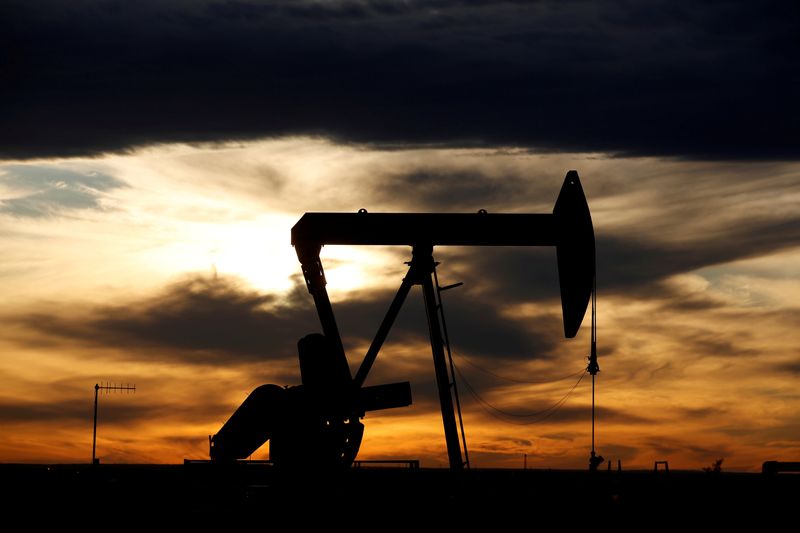By Yuka Obayashi
TOKYO (Reuters) - Oil prices fell for a third day on Thursday as a surprise build in U.S. crude inventories and a resurgence of COVID-19 cases in India and Japan raised concerns that a recovery in global economy and fuel demand may slow.
Brent crude futures fell 57 cents, or 0.9%, to $64.75 a barrel by 0157 GMT, following a drop of $1.25 on Wednesday. U.S. West Texas Intermediate (WTI) crude futures were down 58 cents, or 1.0%, at $60.77 a barrel, after losing $1.32 on Wednesday.
Both contracts dropped more than 2% on Wednesday, closing at their lowest since April 13. They are down more than 3% so far this week.
U.S. crude oil stockpiles unexpectedly edged higher in the week ended on April 16, the Energy Information Administration said on Wednesday, confirming American Petroleum Institute data from the day before.
"Oil prices have been under pressure this week due to growing worries that surging number of COVID-19 cases in India and Japan will slow a recovery in fuel demand in Asia," said Toshitaka Tazawa, an analyst at commodities broker Fujitomi Co.
"The market sentiment was further battered by the EIA's weekly data that showed an increase in U.S. crude oil."
India, the world's third-largest oil user, on Wednesday reported another record increase in its daily death toll from COVID-19. Japan, the world's No.4 oil importer, is considering a state of emergency for Tokyo and Osaka as new case numbers surge, broadcaster NHK reported.
The Organization of the Petroleum Exporting Countries and allies led by Russia, a producer group known as OPEC+, are heading for a largely technical meeting next week in which major changes to policy are unlikely, Russian Deputy Prime Minister and OPEC+ sources said.
"Earlier this week, the market rose briefly on news of Libya's force majeure on exports, but concerns over the spread of the pandemic in Asia are outweighing the Libya's news now," Fujitomi's Tazawa said.

Libya's National Oil Corp (NOC) declared force majeure on Monday on exports from the port of Hariga and said it could extend the measure to other facilities due to a budget dispute with the country's central bank.